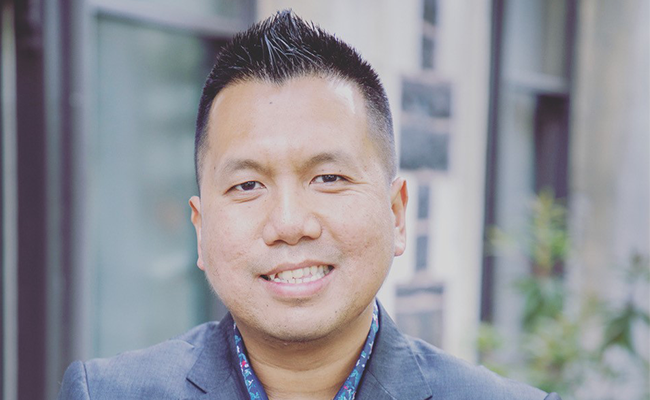Tuesday 5 April 2022 2:28pm
 Rutherford Discovery Fellow Dr Htin Lin Aung
Rutherford Discovery Fellow Dr Htin Lin Aung
Rutherford Discovery Fellow Dr Htin Lin Aung shares his academic journey and passion for research with impact.
Dr Htin Lin Aung can speak from experience about what it’s like to be a student at the University of Otago, having gone from the University’s entrance programme through to getting a PhD.
“I’m a true University of Otago product,” he says.
Having recently received a Rutherford Discovery Fellowship for his research into reducing tuberculosis (TB) inequality, Dr Aung shared how his journey through the Department of Microbiology and Immunology brought him to his current research.
After emigrating to New Zealand from Myanmar in 2001, Dr Aung completed a Foundation Studies Certificate, enabling him to get a Bachelor of Science with first class honours.
After working as a research technician, first at the University of Otago then in Auckland, he returned to the University to undertake a PhD in Microbiology.
“I pursued my PhD under the supervision of Distinguished Professor Gregory Cook, with a scholarship from the Maurice Wilkins Centre of Research Excellence,” Dr Aung says.
“The support I received during my PhD was just amazing – getting me ready for the next phase of my academic journey.”
From there Dr Aung became a postdoctoral fellow and is now a Senior Research Fellow. He received the prestigious Sir Charles Hercus Health Research Fellowship from the New Zealand Health Research Council (HRC) in 2017 and Rutherford Discovery Fellowship from the Royal Society Te Apārangi in 2021.
“I felt very honoured and humbled to have received both the Sir Charles Hercus Health Research Fellowship and Rutherford Discovery Fellowship during my time at the University.”
These fellowships enabled him to move forward with his research, making a difference in not only New Zealand-based TB research, but in worldwide TB studies as well.
“With my Hercus [Fellowship], I have been able to be involved in global TB research with leading research institutions on the frontlines who are in resource-limited settings,” Dr Aung says.
“I have also learnt the importance of working closely with key stakeholders such as local communities, and reducing inequities, including capacity building, by closing the gap in technology in these settings.
“These experiences are instrumental to translate my research into effective interventions and I am bringing these back to New Zealand through my Rutherford.”
Dr Aung received the Rutherford Discovery Fellowship for his research using bacterial genomics to develop community and patient-centred TB healthcare services.
Despite Aotearoa being a low TB-burdened country, Māori and Pasifika respectively have 6 and 16-times higher rates of TB compared to Pākehā, a disparity that Dr Aung says needs to be addressed.
Dr Aung plans to take a multidisciplinary approach to tackle this inequity, by integrating his molecular work with community engagement.
“I want to translate my research into tangible health benefits, which requires working closely with the communities most affected by TB,” Dr Aung says.
In addition to community engagement, the Rutherford Fellowship will involve Māori and Pasifika researchers and postgraduate students, helping to further diversify Aotearoa’s research workforce.
“I am immensely grateful for the support I have received throughout my journey and therefore through my Rutherford [Fellowship] I would like to give back and share the support I have been given with others, as they journey through their research careers.”
Dr Aung concluded by sharing what drives his passion for research.
“Every 20 seconds a person dies from TB. If I could have my legacy be anything, it would be to reduce the number of TB deaths per minute, even if only by a fraction.”
- Written by the Communications Adviser of the School of Biomedical Sciences Kelsey Schutte.
